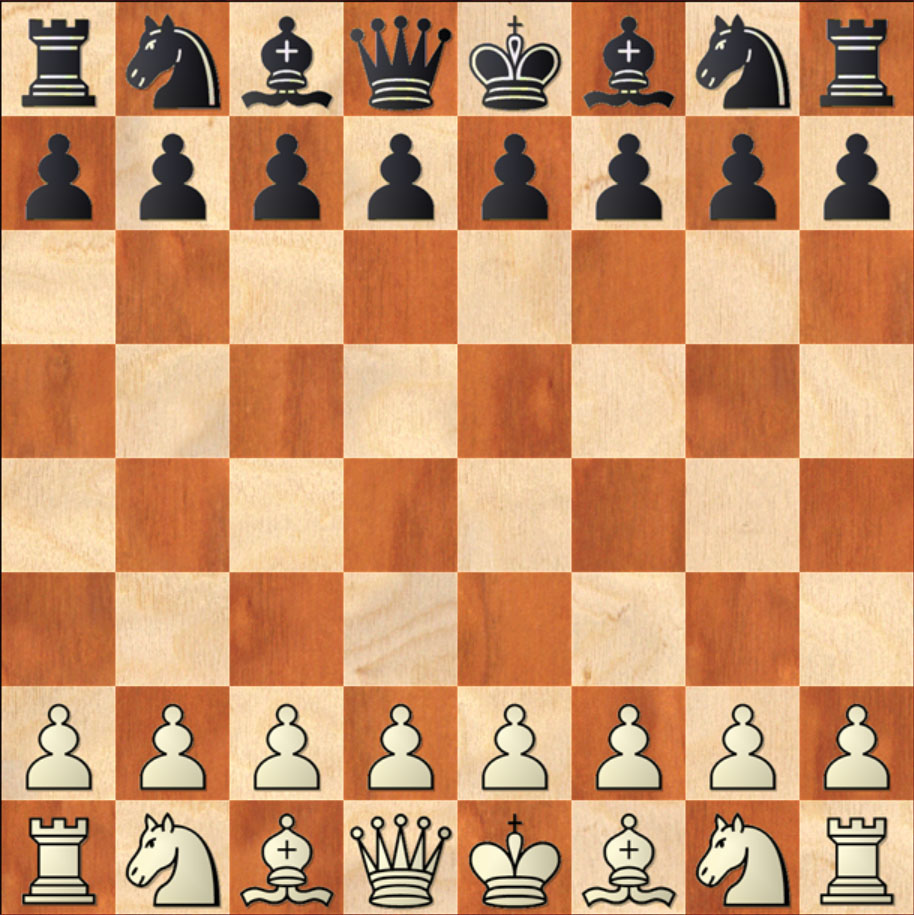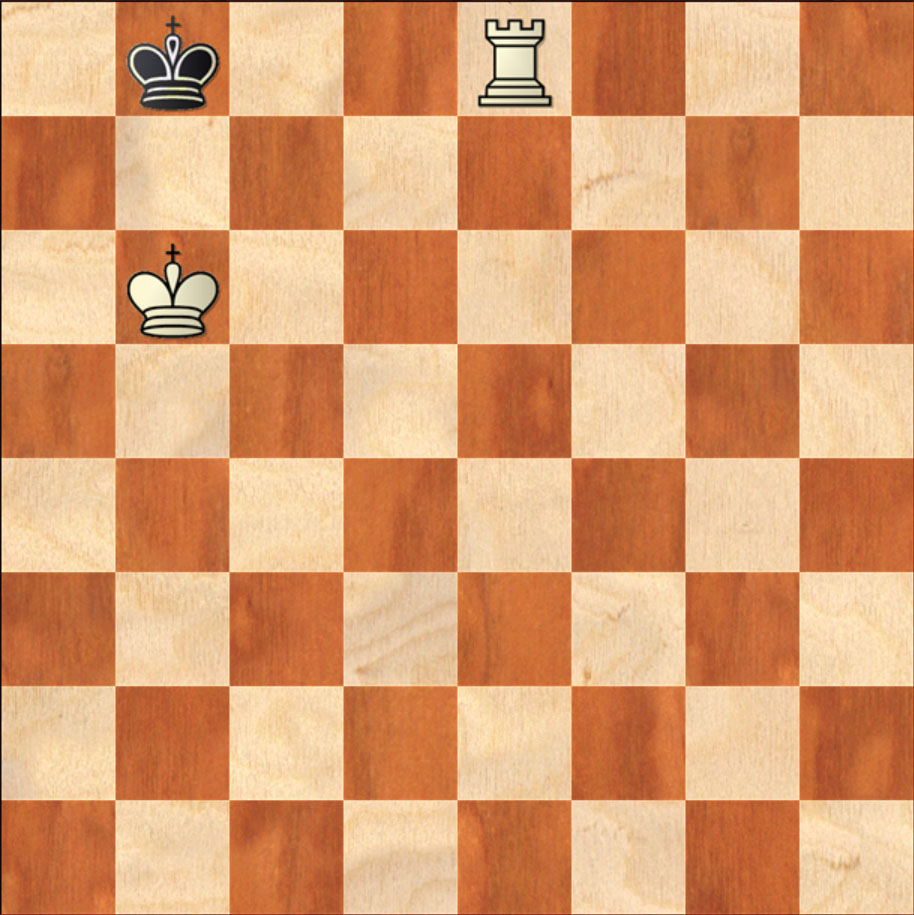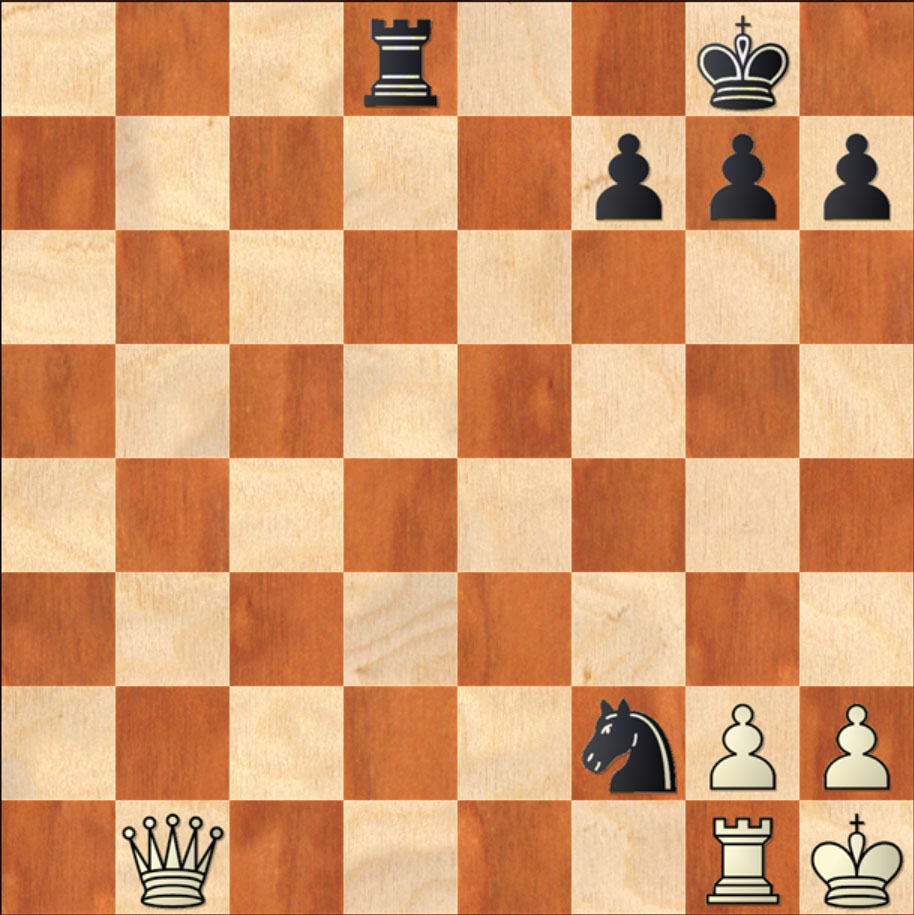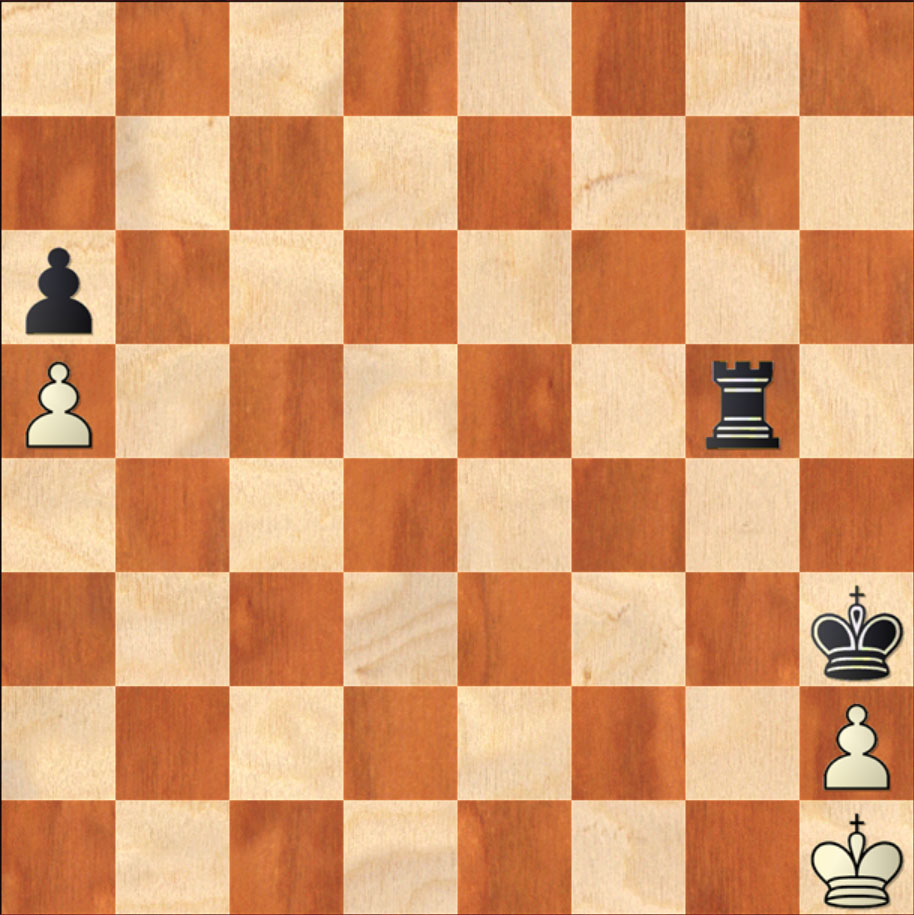Rules of Chess and How to Play Chess for Money
Chess is the royal game, or at least that's what they say. It's not a gambling game because its outcome doesn't depend on chance but on skills and abilities. Nevertheless, chess can also be spiced up with small bets, playing for money.
Brief Rules of Chess
The name of the game chess is derived from the Persian shah (sovereign, king). The origin of chess is speculated to be in India or Persia (present-day Iran) around the year 600 AD. The rules of the game have evolved into the modern form. There is a charming legend about the origin of chess, especially about the modest reward for its invention.
Chess is a game for two players, where one controls the white pieces and the other the black ones. Basic rules of chess are not too complicated; learning to move pawns and pieces can be managed. However, mastering strategy and tactics and venturing onto the path of mastery is a longer journey.

Figure 1: Starting position in chess
Goal of the Game, Ways of Ending
The goal of the game is to checkmate the opponent's king or simply mate (check = king, mate = dead). Mate is a state when the king is threatened, i.e., it's in check, and there is no way to prevent it, such as moving the king to an adjacent square (it would be in check on all squares), capturing the piece giving check, or interposing a piece (blocking the check).
The player who checkmates the opponent is the winner of the game. In practice, checkmate doesn't often happen as players can foresee the end and resign. Resigning is possible at any point during the game.

Figure 2: White rook checkmates the black king

Figure 3: Black delivers a smothered mate with a knight
A chess game can also end in a draw, either by agreement, accepting a draw offer from one of the players ("I offer a draw"), or due to a lack of material – two lone kings cannot checkmate each other, or in some cases, a material advantage cannot force checkmate, and the last case is a stalemate.
Stalemate is a situation where a player is in a position to move, but the king and no other piece can move, and the king is not in check. Stalemate is an interesting tactical possibility that can save a player with a significant material disadvantage; it is the subject of many beautiful chess studies.

Figure 4: Stalemate – white is on move, but there is no legal move, and the king is not in check
Time and Pace of the Game
Chess is played with a limited time. Chess clocks are used for this purpose. They can be mechanical or nowadays more commonly digital. A player, after making a move, presses a button on their side of the clock, stopping their time and starting the opponent's time. It's a simple and practical solution; otherwise, a player with a losing position would not be forced to play and end the game. A player who consumes the allocated time loses on time (there can be exceptions when checkmate cannot be enforced, and then the game ends in a draw).
What pace do chess games follow?
There are three basic options: classical games, rapid chess, and blitz chess. In addition, there are bullet games, but they are usually considered a variant of blitz chess.
Classical games are games where each player has at their disposal a fixed amount of time for the whole game. For example, they can have 90 minutes for the first 40 moves, and then an additional 30 minutes, with an increment of 30 seconds per move. This pace gives the players time to think deeply about their moves, and it is suitable for tournaments and significant games.
Rapid chess is a faster pace with a time limit of, for example, 15 minutes for each player for the whole game. Blitz chess is even faster, typically 3 minutes per player. In bullet games, each player has only 1 minute for the whole game! You can imagine how crazy and chaotic these games are, but they require excellent reflexes and a good understanding of positions. Bullet games are mostly played online, and they are the fastest option for playing chess against other people.
Phases of a Chess Game
White always starts the game and can, in a way, dictate the character of the game, although black has several options for defense or seizing the initiative.
A chess game consists of three phases: opening, middlegame, and endgame. There are numerous openings, attacks, and defenses that branch into variations and subvariations. Opening theory is extensively developed today, partly due to the advancement of computers and chess programs. While opening theory can be learned to some extent, there are textbooks and chess databases available.
Some amateurs may think that players can simply memorize the opening moves. However, this is practically impossible because the number of combinations of possible moves increases with each move. Although it's possible to eliminate nonsensical moves, for the average player, it's more important to understand opening principles such as controlling the center, rapid piece development, etc.
A player's strength is said to be particularly evident in the middlegame, after the opening. The game then transitions to the endgame. With fewer pieces on the board during the endgame, knowing endgame theory becomes crucial. Many artistic studies are created on this subject, showcasing excellent endgame knowledge as a mark of mastery.
Beginners and young players often struggle with endgames, sometimes underestimating them while overestimating openings (memorizing variations). A lot can be lost or gained in endgames—turning a previously successful game into a disaster or rescuing a game due to the opponent's imprecise play.
How to Play Chess for Money
Pace
To add a bit of excitement, it's suitable to play games with shortened time, preferably blitz games, also colloquially known as "blitz" or "blitzkrieg" (from German blitz). The term blitz games is widely used. Blitz tournaments are commonly held in this format.
The most popular time control is typically 5 minutes for the entire game (each player has five minutes). Super blitz can also be played with a time limit of 3 minutes per game or even 1 minute for the entire game and this crazy pace is called bullet.
Time is a significant factor in chess. Even in serious games, a lack of time can lead to mistakes. In blitz games, time is even more crucial. A player can lose on time even if they have a winning position, a significant material advantage, etc., that they cannot capitalize on.
Digital clocks introduced various hybrids of blitz, such as 4m + 2s or 3m + 1s, etc. This means that a player might have only 4 minutes for the entire game, but they gain an extra 2 seconds increment for each move. This is enough for, for example, delivering checkmate with an extra queen.
Bets
Players agree on the basic stake before starting the game, such as $1, $5, $10, or any other amount according to preference. It might also be suitable to agree on a minimum number of games, ensuring a chance to potentially recover lost funds. The number of games should probably be even to alternate colors.
Players can either have the same time control for the game, for example, both with 5 minutes, and the winner takes the bet, or they can play with a handicap, where, for example, white has 5 minutes, and black only has 4 minutes, but white must win to take the bet, while a draw is sufficient for black to win the bet.
Double Up!
A chess game for money can be spiced up with a practice called doubling up, which involves doubling the last bet. This option is used in games like Backgammon, where skills, not just chance, play a role. Another game that uses this concept is Poker.
If a player is confident in a game, for example, has gained a significant or decisive advantage, has better time, etc., they can declare, "Double up!" The opponent now has two options: either resign and pay the opponent the bet or continue the game with doubled bets.
Players take turns exercising the right to double up. The same player cannot double up twice or more in a row with the intention of escalating bets. However, a situation could arise, such as due to a gross error by the player who doubled up, where the opponent can declare "Double up!" and offer to double the last bet (or force the opponent to resign).
If it were a dramatic game where players wouldn't give each other any leeway—doubling up alternately, bets could escalate significantly. It's essential to be cautious because the doubling of bets increases geometrically. In roulette, for example, there is a betting system based on doubling bets.
Example of Doubling Up
Chess players agree on a base bet of $1 for the winner of the game. In a certain phase of the game, white gains a substantial advantage and declares "Double up!" Black can either resign and pay white $1 or continue the game with doubled bets.
Black chooses to continue the game, so they are now playing for $2. Defending vigorously, black, in the end, turns the tables. Now it's black's turn to declare "Double up!" (or Redouble!).
White has the option to either resign the game and pay black $2 or continue the game, doubling the bet to $4. White continues the game, now playing for $4. While white has the right to double up, they choose not to (if white had the courage to double up, the bet would increase to $8, but they would risk the opponent redoubling and increasing it to $16). The game concludes, and the winner receives $4 from the opponent.
Betting and Payout Ratios
Chess is a skill-based game where the outcome is independent of chance. Regarding bets, we described a scenario with two evenly matched chess players, paying out with a ratio of 1:1. This is called a straight bet. For example, if they play for a dollar, one player pays the other a dollar in case of a loss.
However, chess players' performance can differ significantly. Each player has their rating, also known as ELO, and higher-rated players have higher ELO. Chess is not considered a gambling game, but a weaker player would be engaging in gambling if they knew their opponent but the bets were paid out evenly.
A theoretically weaker player (in terms of ELO) might rely on being a good "blitzer," while their opponent excels mainly in serious games with longer thinking times. Recently, the international chess organization FIDE started maintaining three rating lists: for classical play, rapid, and blitz.
For a stronger chess player, it would be advantageous to play against a weaker opponent with an even bet. They have a greater probability of winning than losing, so with the same bet, they achieve a positive average return (measured by expected value). Chance plays no role.
For instance, they might estimate that they can win 8 out of 10 games. The probability of winning is then 0.8 or 80%, and the probability of losing is 0.2 or 20%. In this case, the stronger player has a advantage of 60% over their opponent. This would be their long-term average expected return. On average, they would keep 60% of the bet amount in their pocket. This would surpass many lottery games, where the bookmaker's advantage is around 50%.
If the weaker player doesn't want to play against a stronger opponent voluntarily or doesn't want to accept this disadvantage, they should demand or propose corresponding payout ratios. In this case, the weaker player has a chance of success 2:8 or, after simplification, 1:4.
If, in case of a loss, the weaker player had to pay the opponent $1, then in the case of a win, they should demand $4 from the opponent to be in the correct ratio. Let's verify this by calculating the expected value. The weaker player would win $4 with a probability of 0.2 and lose $1 with a probability of 0.8 (-$1):
EV = 0.2 × $4 + 0.8 × (-$1) = 0.
With such payout ratios, it would be a so-called fair bet, where neither player would gain nor lose in the long run. The weaker player would lose more often by a hundred, but every now and then, they would win four hundred. The statistics addresses the short-term dispersion of results known as variance, which you can explore further with examples.
You Might Be Also Interested
- Charming Legend on the Origin of Chess;
- AlphaZero: World Chess Champion in 4 Hours!
- Artificial Intelligence (AI) Explained;
- Coin Tossing;
- Shell Game aka Thimblerig.
Based on the original Czech article: Šachy.
